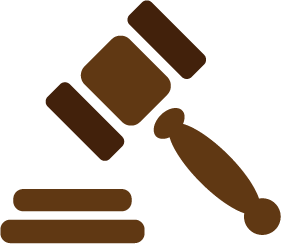Are you currently receiving paychecks that are lower than they should be due to wage garnishment? If so, are you struggling with other debts, too? If a creditor is garnishing your wages, and if you have other debts you cannot pay, you should consider evaluating bankruptcy as a way out of debt. Bankruptcy has the potential to stop wage garnishment and provide relief in other ways, and here are some things you should know as you consider this option.
Filing for Bankruptcy Forces the Garnishment to Stop
One excellent thing you will find out about bankruptcy is that it forces lenders to stop garnishments. Immediately after you file your case, the court will notify all your lenders of the automatic stay. When this occurs, your lenders will know that you are involved in a bankruptcy case, and they will also know that they must cease all collection efforts. They cannot call you or mail letters to you, and they must also stop garnishing your wages. Instantly, you will notice that your paychecks increase due to the elimination of your garnishment.
Bankruptcy Might Eliminate the Debt for the Garnishment
The automatic stay provides temporary relief, as it does not last forever, but your bankruptcy case might eliminate the debt completely. If you file for Chapter 7, and if the debt is a dischargeable debt, your bankruptcy case will eliminate the debt. In other words, the court will discharge the debt, which means you no longer owe the money. There is always a chance that the debt may not fall into the dischargeable debt category, but it might. If the debt is not dischargeable, you will still have to pay it even if you use bankruptcy. The good news, though, is that you will not have to pay it until your case ends and the court lifts the automatic stay.
Bankruptcy Provides Relief for Other Debts, Too
Not only can bankruptcy help with wage garnishment, but it also helps with other debts. If you have any outstanding debts that fall into the dischargeable debt category, Chapter 7 will provide forgiveness for these amounts. After you complete your Chapter 7 case, you should be in a more favorable financial condition from debt forgiveness.
You may have other options for debt relief, too, but bankruptcy generally provides an excellent solution for people who owe a lot of money. If you have questions or need advice about your situation, talk to a bankruptcy attorney.
Share29 April 2020

If your mountain of debt has grown so tremendous that you can't imagine a way out, then you need to contact a bankruptcy attorney. Even though filing bankruptcy can seem like cheating, it is sometimes the only option when you have consumer or medical debt that is consuming your paycheck and then being left unpaid. An attorney can take a look at your finances and recommend a pathway out of debt utilizing one of the several types of bankruptcy available. Learning more about this process can make it seem more approachable. Dig into the articles on this website to get started with that learning.